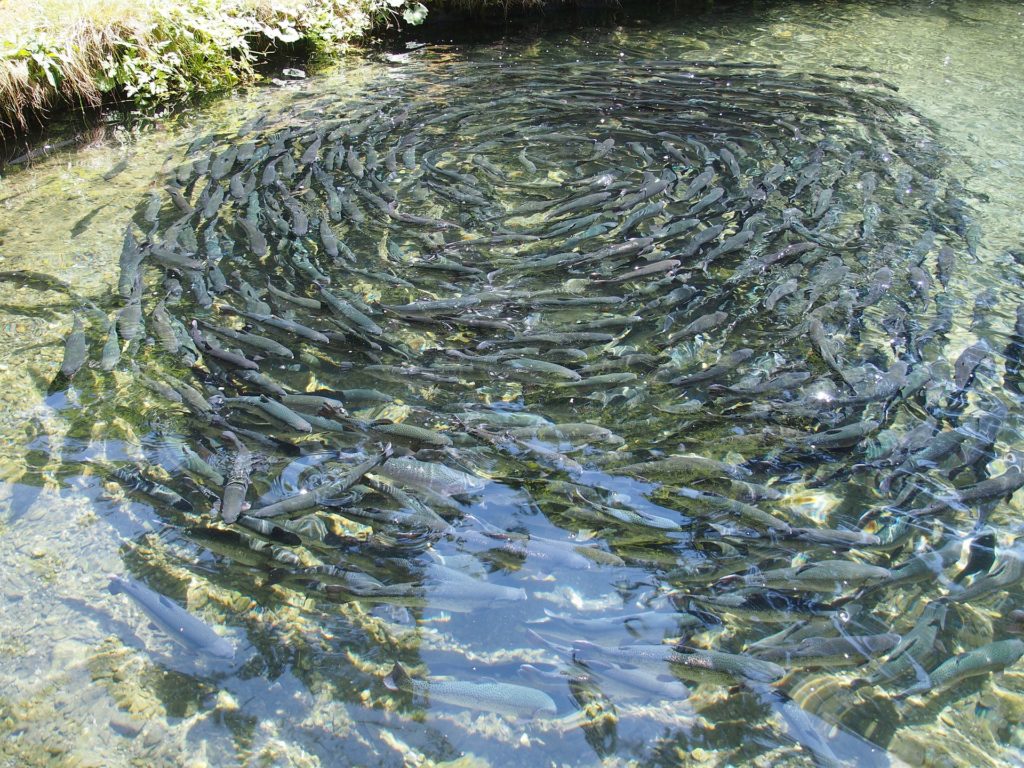Are you concerned eating fish? Every time I turn around I read about why I shouldn’t eat this food or that food. The last article was on fish. It can be an ongoing food struggle to access fresh high nutrient density, organic clean protein. Healing foods are a tool in my recovery and my health. Can fish be a part of the plan?
Look at Fish
When you stop at the fish counter at the supermarket, there are a bunch of things to consider. Is the fish fresh or frozen and what does fresh mean anyway? I would love to see both a caught on and use by date on the label. Second is it wild caught or farmed. Choose wisely and learn about the treatment of fish on the way to the supermarket.
Wild Fish Concerns
Toxins
Fish bio accumulate pollutants from the ocean. The longer they live and more other fish they eat the more toxins they accumulate. There are suggested limits on consumption of specific varieties of fish because they contain high levels of PCB’s and heavy metals.
Large predatory fish like varieties of tuna and swordfish contain toxic levels of mercury. Mercury is neurotoxic. If you have Lyme disease and are struggling to manage toxic loading, then you need to pay attention to this.
Pacific Ocean Fish
We know chemical pollution is a problem for fish. Has radiation from Fukashima started to contaminate pacific coast fish at a high enough level to be concerned? The science says not yet. But Fukashima is still leaking radiation 5 years later, so it may become an issue.
“It would be wonderful if all the salmon we eat could be wild. But as one marine ecologist said to me recently, to continue to eat large wild fish at the rate we’ve been eating them we would need “four or five” oceans to support the current human population.”
― Paul Greenberg, Four Fish: The Future of the Last Wild Food
Food Struggle With Farmed Fish? You Are Not Alone
Some people believe that farmed fish is the future. I really struggle with this. If that is our new reality, we need to do a better job at the farming. We farm fish using the CAFO model. It may be cost effective, but it is not healthy. Fish are raised in quarters that are full of wastes, to tight with food that is not natural for the fish to eat. A farmed fish is different than a wild fish.
Farming practices vary by location and variety of fish. Trout, Tilapia, shellfish and salmon all grow up on farms. Do research, check into where the fish comes from and how it is raised. Use this information to help you decide on whether to buy fish from your market.
Farmed Salmon Options
I love the taste of farmed salmon, also known as Atlantic salmon, I call it candy salmon. Now I choose not to eat it because it is far less healthy than it’s wild counterparts. It doesn’t look like or taste like the wild caught varieties.
Atlantic salmon actually most farmed fish often grow up in tight containment in highly polluted water and an unnatural diet. The combination of bad food and lack of exercise is bad for the fish. They have higher rates of disease and parasites. Make an effort to choose wild caught fish when you eat fish in or out.
A way out of fish based food struggle is out there. Look for alternatives, like organic farmed fish where there is oversight on the living conditions and food for the fish. This protects them and you. Smaller ocean fish are generally cleaner and cause less of a food struggle. Carefully chosen, fish is still a wonderful protein as part of a nutrient dense diet. I hope it continues to be.
The purpose of this website and its contents is to share and educate on Lyme disease recovery strategies. The information provided on this website is not a substitute for professional medical care, treatment or advice. All the material here is for information purposes only. Always share strategy and work with your health care team.


Lately, I am not eating anything but legumes, nuts, fruit and veggies along with organic unsweetened almond milk, non dairy yogurt, grains and fermented sourkraut. It seems that everything I once thought was healthy is a problem!
I know what you mean. We have lost so much from the model making food about money instead of nutrition. I regret having to be suspicious about food, but that is my reality.